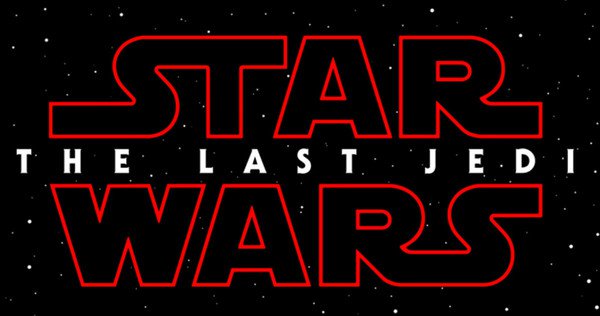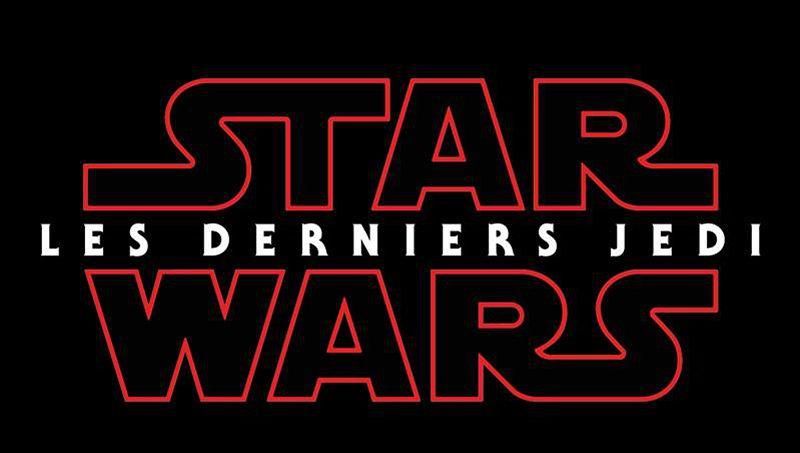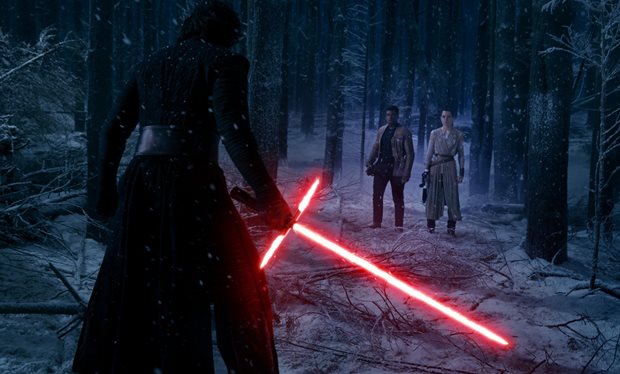
posted by Simon Kemp
When the title of Star Wars Episode VIII was released a few weeks ago, speculation was feverish. Who was The Last Jedi?
Was it him?

…in which case, is Rey not going to be a Jedi after all?
Or was it her? 
…in which case, was Luke Skywalker heading for a sticky end, leaving Rey as the sole remaining Jedi?
Or was it someone else entirely?

Certain regions of the internet were abuzz with many arguments but few answers.
And then, a month or so later the official French translation of the title appeared (along with various other languages too, of course):

…and suddenly, everything was much clearer. The Last Jedi is plural!
Rather like sheep, Jedi, it turns out, do not change in the plural form. So, just as you wouldn’t be able to tell if The Last Sheep was a film about a lone ewe or a whole woolly flock, The Last Jedi is ambiguous about how many Jedi are involved.
In French, though, the English definite article the has to be translated as either le, la or les, to agree with the gender and number of the noun that follows it. In the same way, last must become dernier, dernière, derniers or dernières, forcing the translator to specify whether we’re talking about one or several, male or female Jedis.
So, while The Last Jedi could be about pretty much anyone, Les Derniers Jedi is most definitely a film about two or more Jedi, at least one of whom is male.
It was the gift of the French language to sci-fi nerds everywhere. The French newspaper Le Figaro covered the happy moment in detail here. Here’s a short extract:
Fin janvier, le titre anglais The Last Jedi du huitième épisode de la saga avait engendré de nombreuses théories chez les fans. Ce vendredi matin, la franchise a révélé la traduction française.
Les fans ont eu raison de se méfier, la saga Star Wars a encore une fois habilement brouillé les pistes. Ce vendredi matin, la franchise rachetée par Disney a dévoilé sur son compte Facebook la traduction française du titre du huitième épisode: Les derniers Jedi. Un détail pour certains, un bouleversement pour d’autres.
(If you follow the link to the article, it’s worth also scrolling down to the comments, in which French Star Wars fans excitably debate with each other how English plurals work, and proudly declare the whole episode as evidence that ‘le français est une langue bien plus riche que l’anglais’.)
The ‘last Jedi’/’derniers Jedi’ issue actually illustrates a common problem for translators. In one language, the word or phrase you’re translating has a different scope from what it has in the other language, where it’s either more general or more specific.
Say, for example, you’re translating a French text containing the word ‘étudiante’.
The obvious choice would be ‘student’, but the English word includes male students (‘étudiant‘ in French) as well as female ones, and also includes school students (more usually ‘élève’ in French) as well as university ones. The English word is more general than the French one.
Now let’s say that, later in the same text, you have to translate the word ‘belle-mère’.
You now have the opposite problem. The French word ‘belle-mère’ can mean both ‘step-mother’ and ‘mother-in-law’. The two English words are each more specific than the broader French one.
The solution you decide on will depend on several factors, including:
- the context of the source text (can you work out which of the two English options the belle-mère actually is?)
- the relevance of the information (does the reader need to know the gender of the student or not? If so, do they need to know right now that she’s female, or can the translator slip in a subtle ‘she’ or ‘her’ later on in the text instead?)
- and the style and purpose of the translation (‘the mother-in-law, or, as the case may be, stepmother’ might be an appropriate rendering if you’re translating a legal contract. If you’re translating a poem, not so much).
It’s a nice example of what makes translation a tricky and fascinating business. Languages never quite map onto each other exactly, and translating between them is never a straightforward matter of replacing words in one language with their equivalents in another. Rather, you have to negotiate your way between two different systems, balancing the need for accuracy with a desire to be stylish or sound natural. Sometimes you may decide to leave out information that you can’t find a practical way to include in your translation (‘the female university student’), and sometimes you may even have to take a best guess about something the source text doesn’t make clear (‘her stepmother, or, you know, possibly her mother-in-law, I can’t really be sure‘).
Often, language differences can cause real problems for the struggling translator. Sometimes, though, as with the title of Star Wars Episode VIII, a simple difference can make a big change, and the translator can make everyone happy. Apart, perhaps, from the film-makers at Disney who were hoping to keep everyone guessing for a while longer…

